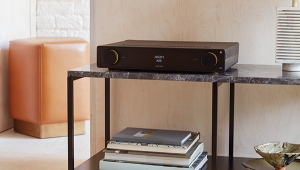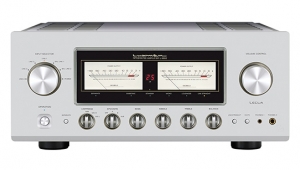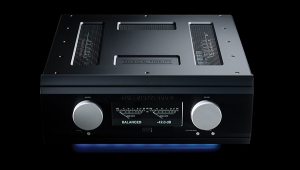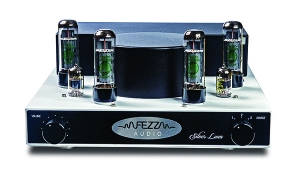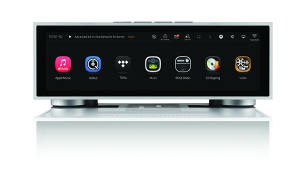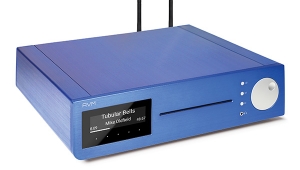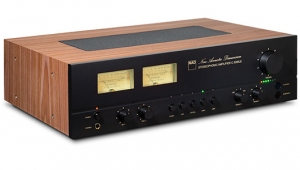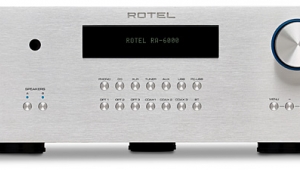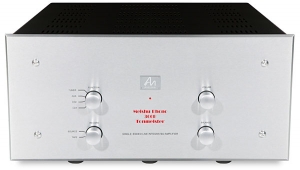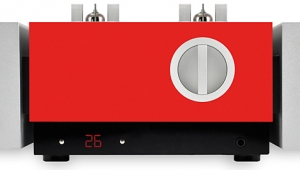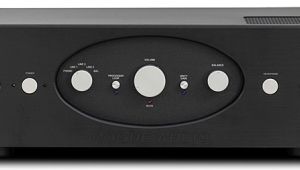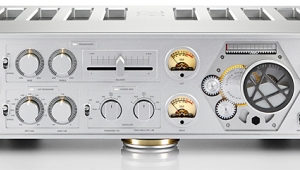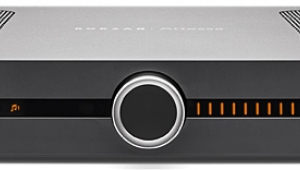| Columns Retired Columns & Blogs |
Cyrus 6vs integrated amplifier Measurements
Sidebar 3: Measurements
The diecast chassis of the nicely finished Cyrus 6vs was very hot at the end of the 60-minute preconditioning period, running at one-third power into 8 ohms with both channels driven. The integral heatsinks were just too hot to keep my hand on, implying a temperature of around 65ºC. However, the distortion present in the amplifier's output didn't rise by any significant amount when the amplifier was hot.
The maximum voltage gain into 8 ohms was 40dB measured at the speaker output terminals, 6dB at the Preamp Out jacks, and the output was in correct, noninverted absolute polarity. The input impedance measured a usefully high 42k ohms across most of the audioband, dropping inconsequentially to 38k ohms at 20kHz. The Preamp Output had a source impedance of 100 ohms, the amplifier itself a source impedance of 0.08 ohm at low and midrange frequencies, rising very slightly to 0.1 ohm at 20kHz.
As a result of this low source impedance, any modification of the 6vs' frequency response due to the usual Ohm's Law interaction with the speaker impedance will be very small—less than ±0.15dB with my standard simulated load (fig.1, top trace at 2kHz). The amplifier's response was flat down to the 10Hz limit of my test gear, but rolls off above the audioband, reaching –3dB at 90kHz, and was not affected by the volume-control setting. The Mute button shut off the output completely. The Cyrus' reproduction of a 10kHz squarewave was excellent (fig.2). Channel separation at 1kHz was a good 81dB, R–L, but only a modest 59dB, L–R. Both figures decreased at 6dB/octave with increasing frequency, due to capacitive coupling between channels somewhere in the circuit.
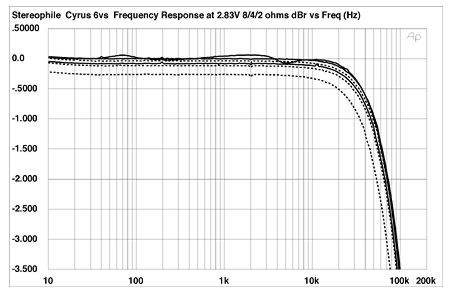
Fig.1 Cyrus 6vs, frequency response at 2.83V into (from top to bottom at 2kHz): simulated loudspeaker load, 8 ohms, 4 ohms, 2 ohms (0.5dB/vertical div., right channel dashed).
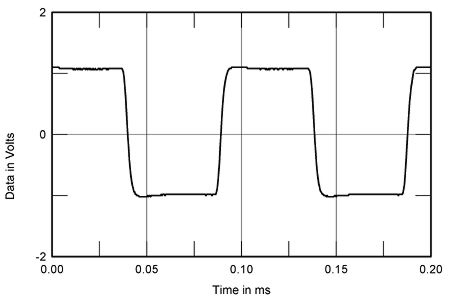
Fig.2 Cyrus 6vs, small-signal 10kHz squarewave into 8 ohms.
The Cyrus 6vs' protection circuitry cut in when I tried to measure its clipping power into low impedances, hence the incompleteness of the 4 and 2 ohm traces in fig.3. Even so, the amplifier more than met its specification into 8 ohms, delivering 50Wpc (17dBW) at clipping, defined as usual as 1% THD+noise. The protection operated at 55.5W into 4 ohms (14.4dBW) with both channels operating and no less than 106.6W into 2 ohms (14.25dBW).
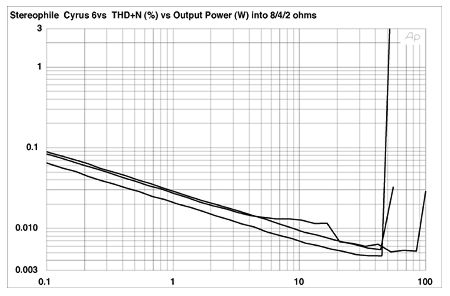
Fig.3 Cyrus 6vs, distortion (%)vs 1kHz continuous output power into (from bottom to top at 1W): 8 ohms, 4 ohms, 2 ohms.
The A-weighted signal/noise ratio (ref. 1W into 8 ohms), taken with the input shorted and the volume control wide open, was a fairly good 75.2dB, this worsening to 62.4dB with an unweighted wideband measurement. At small-signal levels, the distortion is buried in the noise at low and midrange frequencies (fig.4), but shows the common rise in the top octaves due to the circuit's finite open-loop gain. It was hard to estimate the harmonic signature from my usual waveform plot (fig.5), but it appears that some very-low-level high-order harmonics are present at the waveform crossing points. Spectral analysis (fig.6) reveals that the dominant harmonic is the subjectively innocuous second. However, even at the high power at which this graph was plotted, the second harmonic lay at –94dB (0.002%). Intermodulation distortion was also extremely low (fig.7).
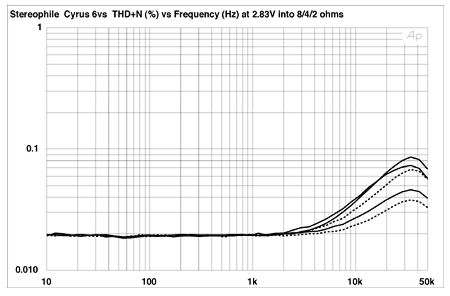
Fig.4 Cyrus 6vs, THD+N (%)vs frequency at 16V into (from bottom to top): 8 ohms, 4 ohms, 2 ohms (right channel dashed).
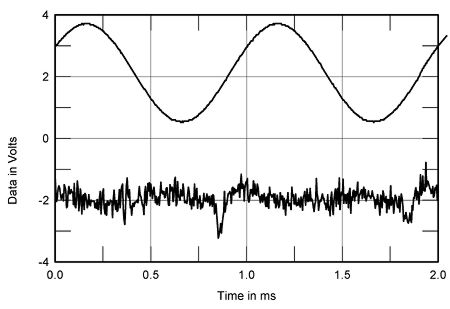
Fig.5 Cyrus 6vs, 1kHz waveform at 24.6W into 4 ohms (top), 0.018% THD+N; distortion and noise waveform with fundamental notched out (bottom, not to scale).
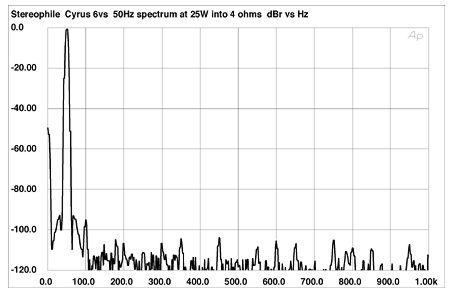
Fig.6 Cyrus 6vs, spectrum of 50Hz sinewave, DC–1kHz, at 25W into 4 ohms (linear frequency scale).
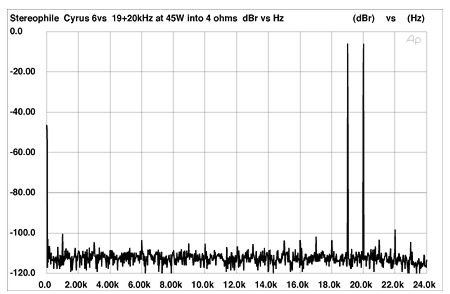
Fig.7 Cyrus 6vs, HF intermodulation spectrum, DC–24kHz, 19+20kHz at 45W peak into 4 ohms (linear frequency scale).
Overall, its measured performance indicates that the Cyrus 6vs is a well-engineered little amplifier, with no shortcomings.—John Atkinson
- Log in or register to post comments
